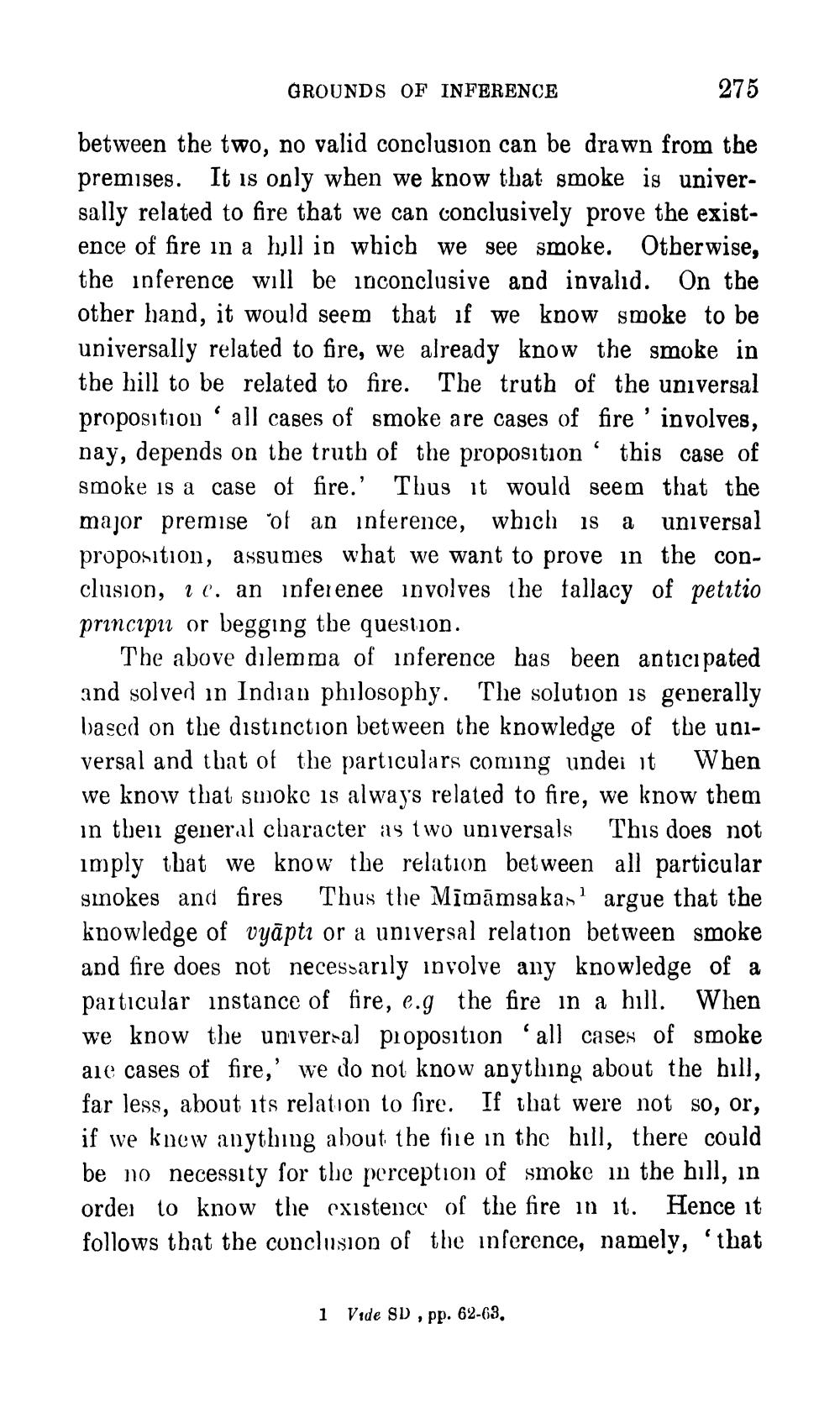________________
GROUNDS OF INFERENCE
275
between the two, no valid conclusion can be drawn from the premises. It is only when we know that smoke is universally related to fire that we can conclusively prove the existence of fire in a hill in which we see smoke. Otberwise, the inference will be inconclusive and invalid. On the other hand, it would seem that if we know smoke to be universally related to fire, we already know the smoke in the hill to be related to fire. The truth of the universal proposition all cases of smoke are cases of fire' involves, nay, depends on the truth of the proposition' this case of smoke is a case of fire.' Thus it would seem that the major premise of an inference, which is a universal proposition, assumes what we want to prove in the conclusion, 11. an inferenee involves the fallacy of petitio principii or begging the question.
The above dilemma of inference has been anticipated and solved in Indian philosophy. The solution is generally based on the distinction between the knowledge of the universal and that of the particulars coming undei it When we know that smoke is always related to fire, we know them in then general character as two universals This does not imply that we know the relation between all particular sinokes and fires Thus the Mīmāmsakas? argue that the knowledge of vyāptı or a universal relation between smoke and fire does not necessarily involve any knowledge of a particular instance of fire, e.g the fire in a hill. When we know the universal proposition all cases of smoke ale cases of fire, we do not know anything about the hill, far less, about its relation to fire. If that were not so, or, if we know anything about the fire in the hill, there could be no necessity for the perception of smoke in the hill, in order to know the existence of the fire in it. Hence it follows that the conclusion of the inference, namely, 'that
1
Vide SD, pp. 62-63,




